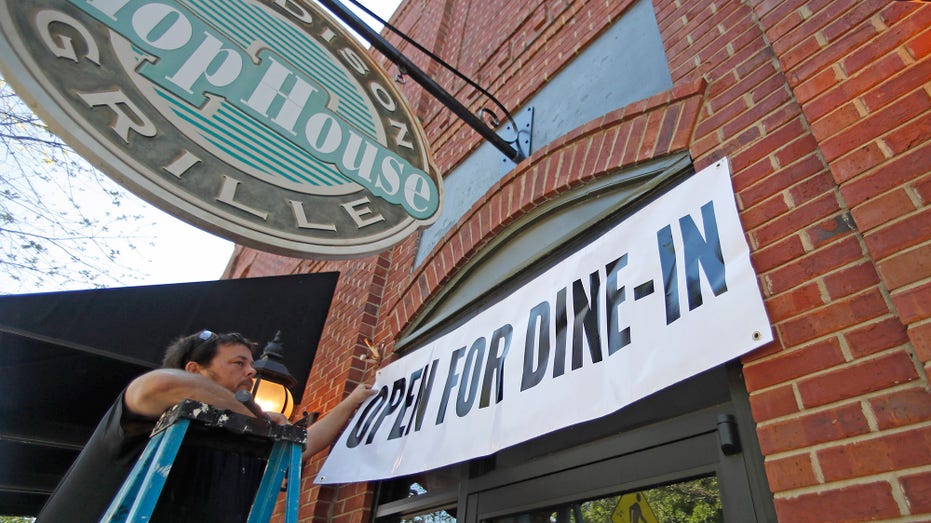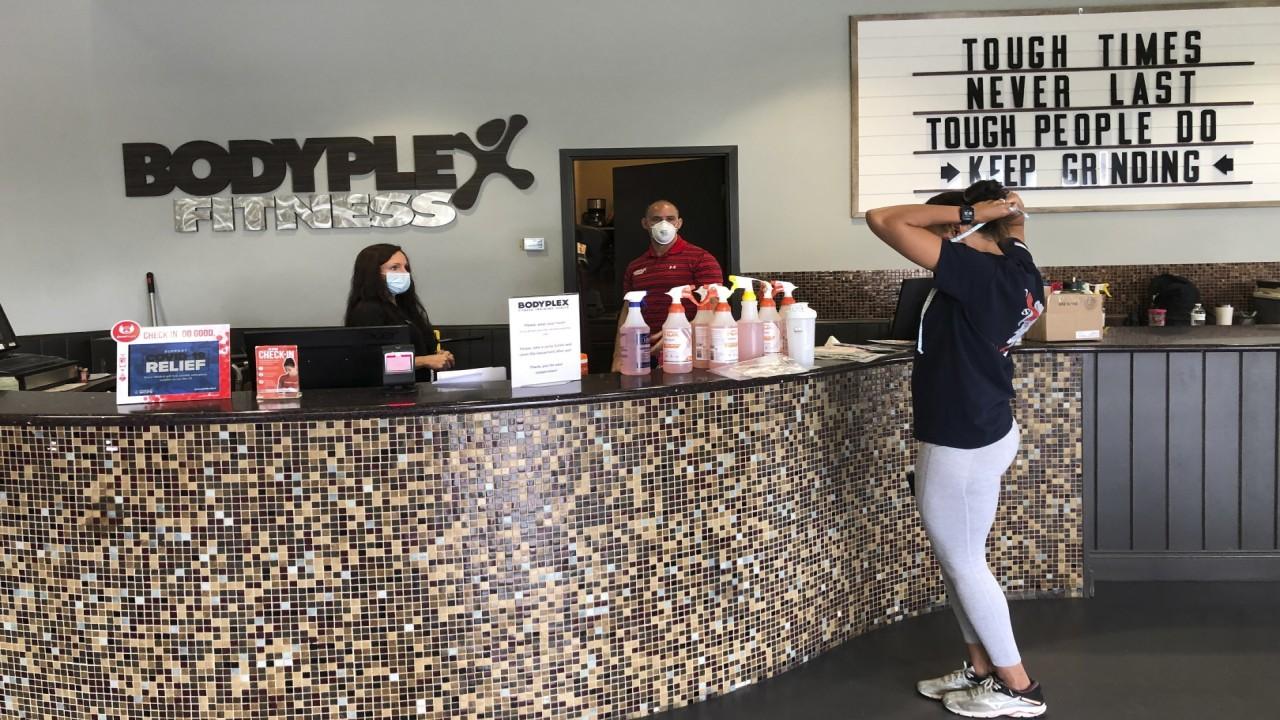Georgia businesses reopen, some warily, as states begin unwinding coronavirus shutdowns
Dr. Anthony Fauci said he was concerned about states and communities reopening ahead of a timeline recommended by the White House
Get all the latest news on coronavirus and more delivered daily to your inbox. Sign up here.
ATLANTA -- Nearly every business in Georgia was free to reopen on Friday after being shut for weeks, in a move closely watched by the U.S. government and other states to see if the lifting of restrictions triggers a spike in coronavirus deaths.
With about half of U.S. states edging towards the partial lifting of shutdowns that had aimed to curb the pandemic, Georgia was trying to get back to business ahead of the others.
GET FOX BUSINESS ON THE GO BY CLICKING HERE
Governor Brian Kemp, a Republican, decided against extending Georgia’s month-long shelter-in-place orders this week, enabling a full gamut of businesses to open. He approved the reopening of hair salons, gyms and other service businesses last Friday, followed by movie theaters and restaurants on Monday.
By contrast, New York Governor Andrew Cuomo said on Friday all state schools including colleges would remain closed for the remainder of the academic year due to the pandemic. The coronavirus has hit New York especially hard, making it the world epicenter for the COVID-19 disease.
GEORGIA LETS BUSINESSES REOPEN AS CORONAVIRUS DEATHS, INFECTIONS CONTINUE TO RISE
With stores shut, Americans are relying more heavily on home deliveries of everything from food to clothes and office equipment, giving online retailers like Amazon.com Inc a heavy workload.
Some workers at Amazon, Target Corp and Instacart Inc were staging protests and sick-outs in New York, Pennsylvania, Oregon and other states on Friday to demand a safer work environment and better pay during the outbreak.
Dr. Anthony Fauci, director of the National Institute of Allergy and Infectious Diseases and an adviser to President Donald Trump, said on Thursday he was concerned about states and communities reopening ahead of a timeline recommended by the White House.
But Georgia’s rush to get back to work was applauded by Michael Bowers, 55, who co-owns Bowers Watch & Clock Repair in Atlanta’s tony Buckhead neighborhood.
MAY DAY DEMONSTRATORS, CORONAVIRUS LOCKDOWN PROTESTERS TAKE TO STREETS NATIONWIDE
“We need to reopen,” he said of the business his grandfather started in the 1940s. “We couldn’t stay alive with doors shut. We need that money stream or we fail.”
Bowers had no customers in his store early on Friday but had heard from people who wanted to pick up clocks left before the shutdown.
“We know you have to be cautious, we know it’s not entirely safe,” he said, standing in front of a wall covered with antique timepieces, including an age-faded pendulum clock dating to 1775.
Michael Knight, 57, owner of the vintage furniture and art store Kaboodle Home in East Atlanta Village, said he is not opening anytime soon.

Jason Godbey hangs a banner over the entrance of Madison Chop House Grille as they prepare to shift from take out only to dine-in service in Madison, Ga. (AP Photo/John Bazemore, File)
“There’s no way we’re ready or safe, no matter what Kemp says,” Knight said.
Kacey Cloues, owner of the Garden Hood, a garden center in Atlanta, said she has misgivings about relaxing the restrictions and for now only lets a maximum of five customers in at a time with just two staffers on the floor. “We’re allowed lots more. But it’s not safe,” she said.
The number of confirmed COVID-19 cases in Georgia rose to 27,270 on Friday, according to the state Department of Public Health, a jump of more than 1,000 from Thursday. According to the World Health Organization, the incubation period for the disease is generally five days.
PRESSURE ON STATES
As of Friday, the number of known infections nationwide had climbed to well over 1 million, including nearly 64,000 deaths, exceeding the tally of American war dead from all the years of U.S. military involvement in Vietnam.
The enormous pressure on states to reopen, despite a lack of wide-scale virus testing and other safeguards urged by health experts, was highlighted in Labor Department data on Thursday showing some 30 million Americans have sought unemployment benefits since March 21.
CORONAVIRUS SMALL BUSINESS RESCUE RECIPIENTS COULD FACE LOAN FORGIVENESS CHALLENGES — HERE'S WHY
Trump, who has sent conflicting messages on the pandemic for weeks, added to the pressure on state governors on Friday. In a Twitter message, he urged Michigan’s Democratic governor, Gretchen Whitmer, to compromise with protesters who gathered at the state Capitol in Lansing on Thursday to decry her request to extend emergency powers to combat COVID-19.
“The Governor of Michigan should give a little, and put out the fire. These are very good people, but they are angry. They want their lives back again, safely! See them, talk to them, make a deal,” Trump tweeted.
New Mexico Governor Michelle Lujan Grisham on Friday ordered a lockdown of the town of Gallup after its mayor requested the measure to control the state’s worst coronavirus outbreak.
All roads into the town of 22,000 people were to close and businesses shut nightly from 5 p.m. Gallup is the county seat of McKinley County, which forms part of the hard-hit Navajo Nation reservation. The county has 1,027 coronavirus cases, the highest of any in New Mexico, and 19 deaths.
With White House guidelines for reopening having expired on Thursday, half of all U.S. states were using a patchwork of strategies to allow businesses, from restaurants and retailers to construction and manufacturing, to emerge from a month of dormancy.
No companies were required to reopen and it was unclear how many business owners and employees would return to work, and how many patrons would venture back into stores and restaurants.
In Texas, all retail stores, restaurants, movie theaters and malls were allowed to resume activity on Friday while limiting capacity to 25% of their listed occupancy.
Ohio will start by allowing non-essential surgeries on Friday then move to open construction and manufacturing on Monday and retail shops and many consumer services on May 12.





















